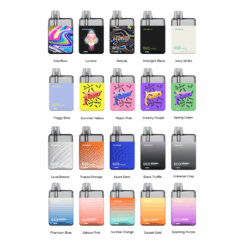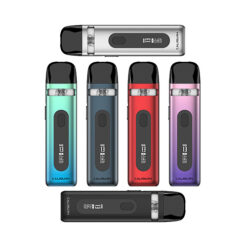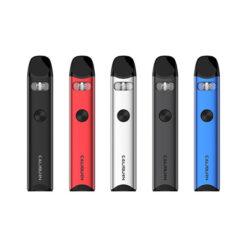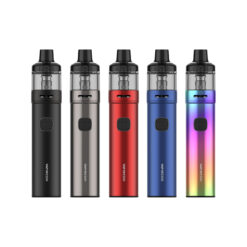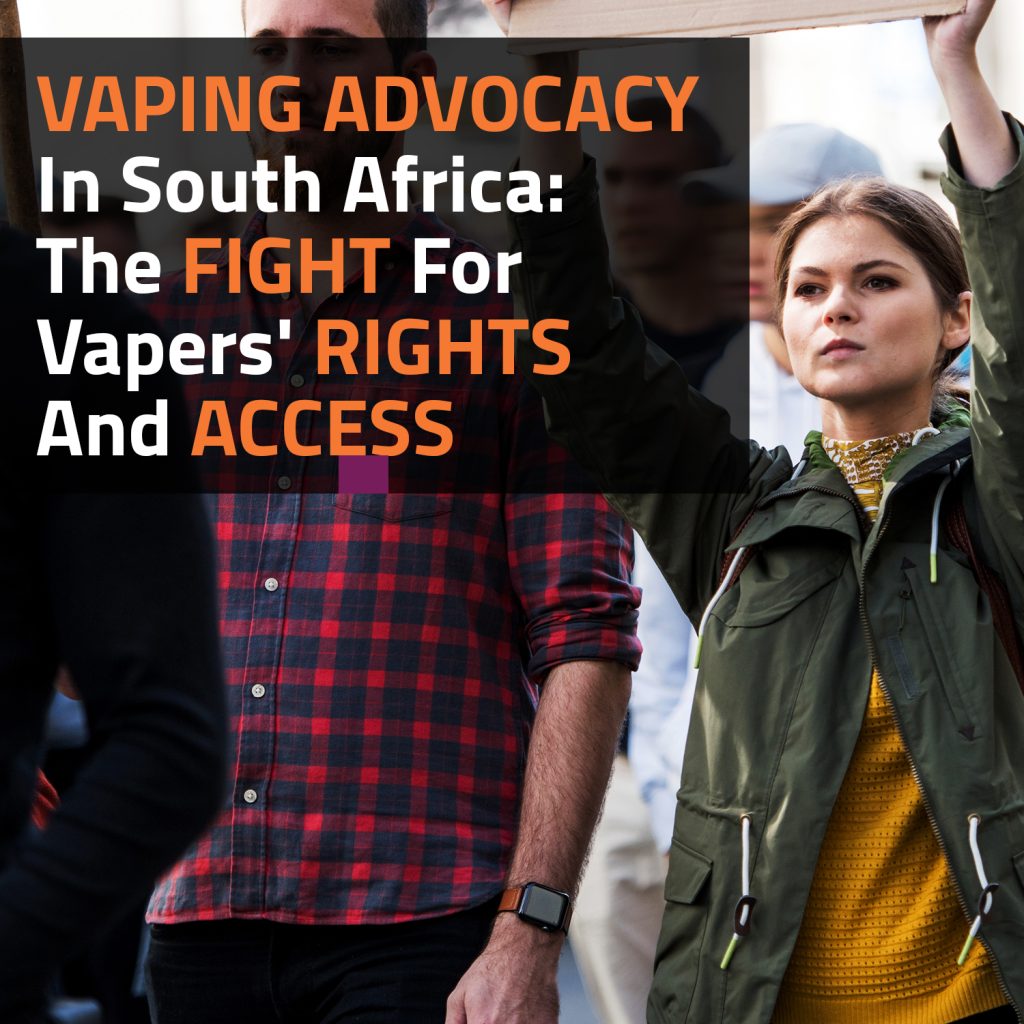Vaping has become a contentious issue in South Africa, as it has globally. As individuals seek alternatives to traditional tobacco smoking, the vaping industry has grown substantially in the country. However, this growth has been accompanied by regulatory challenges and a need for advocacy to protect vapers’ rights and access to vaping products.
-
Vaporesso ECO NANO Kit
R295.00Original price was: R295.00.R195.00Current price is: R195.00. -
UWELL Caliburn X Pod System
R625.00Original price was: R625.00.R399.00Current price is: R399.00. -
Uwell Caliburn A3 Pod Kit
R450.00Original price was: R450.00.R300.00Current price is: R300.00. -
Vaporesso GTX GO 40 Kit
R395.00
Understanding Vaping In South Africa
Vaping involves the inhalation of vapour produced by electronic cigarettes or vape pens. Unlike traditional smoking, vaping does not involve burning tobacco; instead, it heats a liquid (e-liquid or vape juice) to create vapour. This vapour can contain nicotine, but it is devoid of many harmful chemicals found in tobacco smoke.
Over the past decade, vaping has gained popularity in South Africa as a potentially less harmful alternative to smoking. Many smokers have turned to vaping in an effort to reduce the health risks associated with tobacco consumption. The rise of vaping culture is evident in the growing number of vape shops, online communities, and vaping events across the country.
Vaping Regulations And Restrictions In South Africa
South Africa introduced the Tobacco Control Amendment Act in 2018, which established regulations for vaping products. These regulations include packaging requirements, labelling rules, and restrictions on advertising to minors.
What Laws Govern Vaping Products?
South Africa’s vaping industry operates under the Tobacco Control Amendment Act of 2018. This act establishes a legal framework for vaping products, including regulations for packaging, labelling, and advertising. It also allows for the regulation of nicotine levels in e-liquids and places responsibility on manufacturers to adhere to specific quality standards.
South Africa has age restrictions in place to prevent the sale of vaping products to minors. The legal age for purchasing vaping products is 18 years old, mirroring the age limit for purchasing tobacco products. Retailers are expected to verify the age of customers before selling any vaping products.
The Tobacco Control Amendment Act includes strict advertising restrictions to protect youth from exposure to vaping marketing. These restrictions prohibit any form of advertising that could appeal to minors. For instance, using cartoon characters, celebrity endorsements, or promoting flavours that may attract children are strictly prohibited. The law aims to ensure that vaping advertising targets adult smokers and not underage individuals.
The Birth Of Vaping Advocacy In South Africa
Vaping advocacy efforts in South Africa gained momentum in the early 2010s as vapers and business owners began to face increasing challenges due to regulatory developments and public misconceptions about vaping.
Who Are The Key Players In The Vaping Advocacy Movement?
Vaping advocacy organisations in South Africa play a crucial role in protecting vapers’ rights and advocating for sensible regulations. These organisations, such as the Vapour Product Association (VPA) and the Africa Harm Reduction Alliance (AHRA), actively engage with policymakers, conduct research, and represent the interests of the vaping community. They work towards ensuring that vaping products remain accessible to adult smokers seeking an alternative to combustible tobacco.
Prominent figures in South Africa’s vaping advocacy movement include doctors, public health experts, and researchers. These individuals provide scientific evidence and expert opinions on vaping’s potential as a harm reduction tool. Their support carries significant weight in shaping public opinion and influencing policy decisions.
The Battle For Vapers’ Rights
Vapers’ rights encompass the freedom to make informed choices about harm reduction alternatives like vaping. These rights are vital because they impact personal health decisions, access to safer alternatives, and individual liberty.
How Have Vaping Enthusiasts Organised To Protect Their Rights?
Vaping enthusiasts in South Africa have engaged in lobbying efforts to influence lawmakers and policymakers. They attend parliamentary sessions, meet with government officials, and present evidence supporting vaping as a harm reduction tool. Lobbying plays a pivotal role in shaping legislation and regulations related to vaping.
At the grassroots level, local vaping communities and advocacy groups organise rallies, awareness campaigns, and educational events. These efforts help to foster a sense of community among vapers and raise awareness about the importance of vaping as a smoking cessation tool. Grassroots involvement is essential for building public support and countering misconceptions about vaping.
Challenges And Controversies
One of the most significant challenges is combating public misconceptions and misinformation surrounding vaping. Advocates must address the often-unfounded fears about vaping and educate the public about its potential as a less harmful alternative to smoking.
Health concerns, especially related to youth vaping rates and the long-term effects of vaping, have led to stricter regulations and safety concerns. Balancing the protection of youth with adult access remains a challenge for advocates.
Advocates argue that vaping is a harm reduction tool that can help smokers quit traditional cigarettes. Critics, however, raise concerns about the safety of vaping and its potential to act as a gateway to smoking for young people. Resolving these debates is essential for shaping policy and public perception. While there is evidence to suggest that vaping can aid in smoking cessation, the scientific community is still studying the long-term effects. Advocates highlight success stories of smokers who quit through vaping, while critics call for more rigorous scientific research to support these claims.
Vaping Access In South Africa
The South African market offers a diverse range of vaping devices, from simple disposable e-cigarettes to more advanced mods and pod systems. E-liquids come in various flavours, catering to different preferences, including tobacco, fruit, dessert, and menthol options. Vaping products are available at various price points, making them accessible to a wide range of consumers. Starter kits are often affordable, while enthusiasts can choose from high-end devices for a more personalised vaping experience.
Vaping products are accessible through dedicated vape shops, convenience stores, and online retailers. This wide availability ensures that consumers across the country have access to vaping products. Despite the legal framework, some regions in South Africa may face challenges in accessing vaping products due to limited retail presence or difficulties with online deliveries. Advocacy efforts also focus on improving accessibility in underserved areas.
International Comparisons
South Africa’s vaping regulations may differ significantly from those in other countries, such as the UK or the US. Understanding these differences is crucial for South African advocates when formulating their strategies. Learning from countries with successful vaping policies can provide valuable insights for South African advocates. These countries may offer best practices that can be adapted to the South African context.
Global Trends In Vaping And Their Impact On South Africa
Keeping an eye on global trends in vaping, including innovations, emerging scientific findings, and shifts in public perception, can help South African advocates stay informed and adapt their strategies to align with international developments.
In conclusion, the fight for vapers’ rights and access to vaping products in South Africa is a complex and ongoing battle. Vaping advocacy organisations, individuals, and communities are working tirelessly to navigate regulatory challenges, address public concerns, and protect the rights of those who choose vaping as a harm reduction tool. As the vaping landscape evolves, it is essential to stay informed and engaged to secure a safer and more accessible future for South African vapers.


